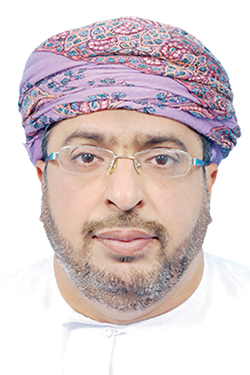

Haider Al lawati -
haiderdawood@hotmail.com -
some people, especially in Arab societies, are exposed to extortion from cyber gangs based in some Arab capitals as use of modern technologies, such as smart devices and Internet, have increased.
This has led some young people to fall into financial and psychological problems as a result of their inability to cope with the consequences of extortion.
Cyber-extortion is a process that forces a person to do anything.
It is a threat and intimidation of the victim by posting their personal photographs or material, leaking confidential information about the victim in return for money or exploitation of the victim to carry out illegal acts on behalf of the extortionists. Those dealing with these issues say that cyber-extortion and drug trafficking are disturbing concepts that stir great deal of negative emotions.
It is a vivid embodiment of the most degenerate qualities a person can possess when he exploits his power and intelligence to harm vulnerable people.
The victims are from different walks of life, men and women of all ages, although young are the most targeted group. There are reports of extortion which some Omanis were exposed to in the past few years.
However, young people are now increasingly aware and are reporting these problems to authorities.
In this regard, experts on these issues advise users to avoid initiating or accepting requests of friendship from unknown people, not to respond to or take part in anonymous conversations, not to share personal information in cyberspace, reject video conversations, avoid links with attractive or unusual titles, reject requests to download materials from unknown origin.
Some cyber extortionists operate as highly professional and organised gangs, some of them work through professional gangs in these cases, which requires users not to respond to them or to any materialistic or moral demands, while being careful not to provoke their anger and report such cases to the cybercrime authorities immediately.
If cyber-extortion has become a blot on the community, drugs is no less a danger because it leads to psychological and social instability of the person, bringing family troubles, and other damages, including impaired general disorders, family dysfunctions, job instability and increased crime rate in the society.
In this context, these issues are on the rise in GCC societies, as the use of modern means of communications grows.
Figures show that about 57 per cent of those between the ages of 16 and 24 in the Sultanate use social media platforms out of the total who own these devices.
Some statistics also show that 86 per cent of Omanis use Facebook accounts, 80 per cent communicate through Whatsapp, while 40 per cent have Google and Instagram accounts and 36 per cent are on Twitter.
These rates allow international companies to carry out promotional and marketing campaigns for new products and commodities in the region, but some of these accounts are also used in other areas such as cyber-extortion and drug trafficking. The number of cyber-extortion cases recorded by the authorities concerned in the Sultanate has reached touched 269 from 2011 to 2016, of which 161 cases are recorded in 2016, while the total cases for various crimes of information technology stood at 355 in 2016.
The Omani government has enacted many laws that deal with cases of misuse of the Internet or means of information technology. Efforts to curb cyber-extortion have also been crowned with success.
Oman Observer is now on the WhatsApp channel. Click here



